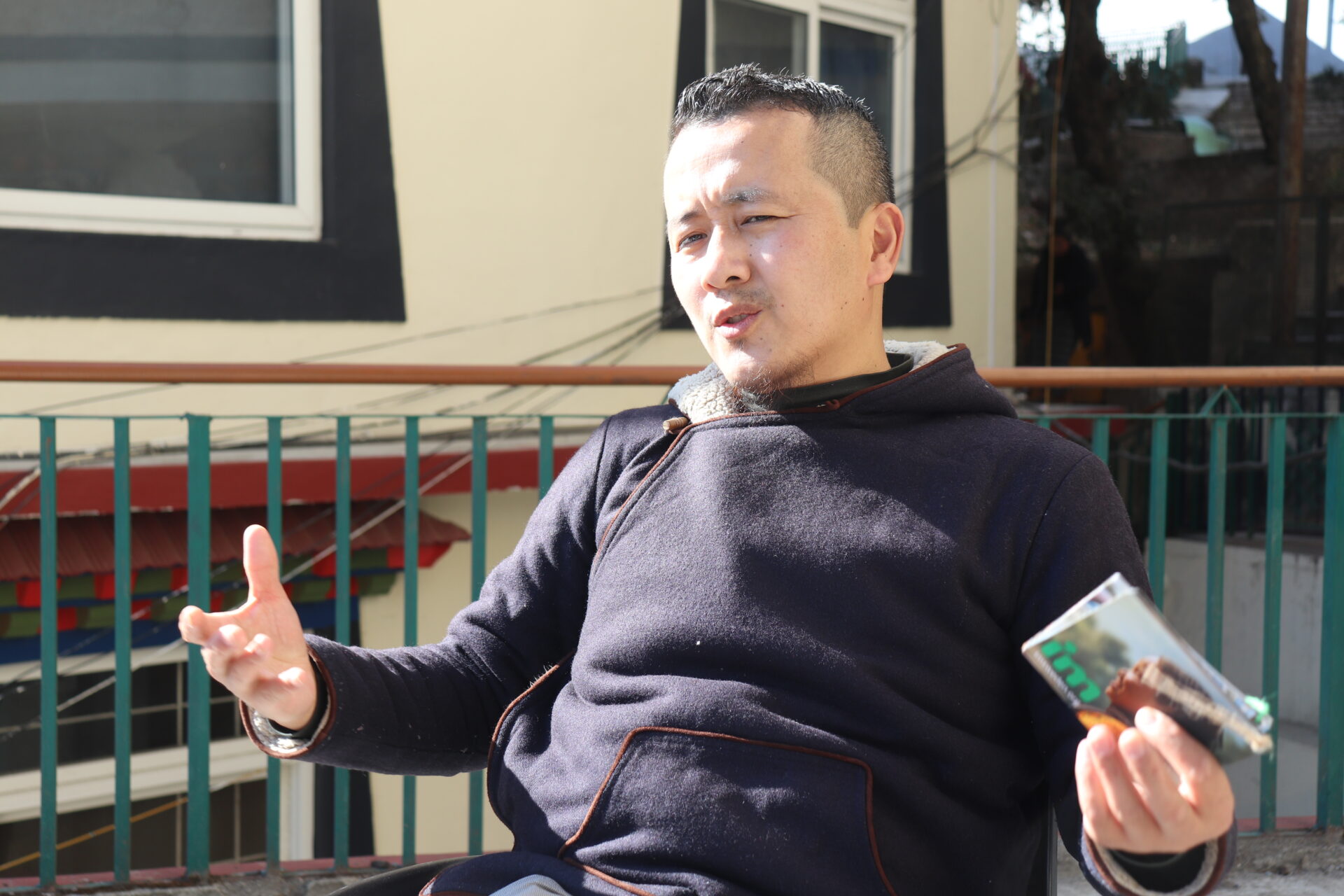Navigating Identity, Responsibility, and Opportunity as a Young Tibetan

35-year-old Thupten Rigzin believes that being a young Tibetan today is fraught with challenges. With limited opportunities and the unique pressure of preserving his culture, Thupten – like many of his peers – grapples with questions of identity, hope, and belonging.
Born in India to Tibetan refugee parents, Thupten knows Tibet only through stories from his parents and grandparents, and glimpses on YouTube.
“I imagine old mountains, green grasslands, nomads riding horses, crossing rivers and lakes. That’s what I see on YouTube,” he says.
Yet, even without having set foot on Tibetan soil, his ancestral homeland has shaped his dreams, responsibilities, and sense of purpose.
IM-led Youth Empowerment Desk
Thupten grew up surrounded by tales of exile – of the perilous journeys his parents undertook and the enduring longing for a homeland they could never return to. After completing an MBA in the USA, he returned to India, drawn by the culture and community he had grown up with.
His path led him to the IM-led Youth Empowerment Desk within the Central Tibetan Administration (CTA), where he joined a committee tackling the pressing issue of youth unemployment.
The challenge was immense. Many young Tibetans, facing limited prospects in India, migrated abroad in search of better opportunities, leaving Tibetan settlements emptier and their vibrant culture at risk of fading.
“The main purpose of the desk was to address unemployment in the Tibetan community. It provided skill and vocational education, guidance and counselling for the unemployed, micro-credit for aspiring entrepreneurs, and opportunities for career advancement,” says Thupten.
As head of the desk, he established mechanisms for like-minded individuals and institutions to meet every three to six months, exchange ideas, and coordinate efforts to amplify impact.
Working with IM
For 50 years, IM has played a key role in empowering Tibetan youth, particularly through career guidance and skill development. Thupten has worked closely with the organisation over many years.
“Even visiting the campus felt like visiting a Tibetan institute. IM provided close support, helping to build capacities within the community. Under IM’s guidance, the youth desk not only existed but expanded its scope,” he recalls.
As head of the desk, Thupten dedicated himself to creating opportunities for young Tibetans to sustain themselves without losing their cultural roots.
Today, It’s Tough to Be a Young Tibetan
Despite his work to address challenges such as unemployment and migration, Thupten believes today’s youth face even greater hurdles.
“The world is full of conflicts. Youth have to deal with the ripple effects of wars, climate change, and now AI and automation, which will have a huge impact,” he says confidently.
He stresses the importance of equipping young Tibetans to navigate a future shaped by rapidly emerging technologies and global crises.
The Unseen Burden on Tibetan Youths
Tibetan youth carry responsibilities beyond the norm. “Since school, we’ve been taught that we have extra responsibilities. We need to give 200 per cent effort because of what we have to fight for. That weight sometimes stretches us, but it also shapes us,” says Thupten, speaking for many young Tibetans.
Migration is one of the community’s most pressing challenges.
“When young people move abroad, Tibetan settlements are left with only older generations. Sustainability becomes an issue. We must not forget our roots, culture, and values. Youth need to preserve and promote our language and identity at all costs,” he says.
The CTA is working to address these challenges by implementing programmes that provide skills education, support for small businesses in settlements, and a conducive environment to encourage youth to remain engaged within the community.
The Central Tibetan Administration
The Central Tibetan Administration is the Tibetan government in exile, based in Dharamshala, India. The CTA is the legitimate representative of Tibetan people both in and outside Tibet. It was set up to address the twin task of restoration of freedom for Tibetans and rehabilitation of Tibetan refugees.
Text and photo: Isha Banerjee
By: Malin Kihlström